Video production is a fast-growing, customer-friendly approach to marketing. What’s more, your customers have come to demand high-quality video content from their favorite brands.
According to a report published by New York Magazine and Livestream, 80% of peoplewould rather get their content from a video than a blog post.
But before you prepare for your video debut, you’ll need to create a storyboard to outline your video.
Not sure where to begin? No worries!
Here’s what you need to know about creating a video storyboard for your marketing video.
Yes, a Storyboard Is Necessary
Many people get so excited at the idea of making a video that they want to jump in head-first. We admire that, but it isn’t advisable.
In fact, a storyboard is every bit as important to the production process as a script.
Think of it as a visual extension of your brainstormed ideas. A storyboard is a way to get your ideas down on paper (or screen) and organize your ideas in a manner that illustrates the story.
Video storyboarding is intended to get everyone on the same page and communicate your ideas to the production team. When it comes time to shoot your video, everyone will have a clear idea of the shot list, how it’s getting shot and the flow of the narrative.
If you’re not sure where to begin, don’t worry. There are plenty of great storyboard examples you can check out online to better understand the process.
Brush Up On Basic Framing Techniques
In cinematography, there are three basic shots.
- The close-up.
- The medium shot
- The long shot.
It may seem hard to believe, but every video you’ve ever enjoyed comprised of variations of these three simple shots!
While that may not seem like a lot to work with, there’s a surprising amount you can convey using the basics.
Each shot serves a unique yet integral purpose.
The close-up is often used to convey a sense of intimacy. Since the camera (and thus the viewer) is closer to the subject, it’s easier to draw the viewer in.
The medium shot, while still a great way to familiarize a viewer with the subject, is best suited for scenes with multiple subjects. The Adorama Learning Center’s explanationsums it up best: It’s a way to convey information instead of emotion.
The long shot (also known as the wide shot) is a way to convey location and scale. This is what you and your team will use to establish a scene’s location, for example.
Don’t worry, there are still plenty of ways to use these three shot types to create eye-popping visuals. Shoot from different angles to keep things visually interesting.
Don’t Worry About Your Artistic Skills
In our experience, most people get nervous about the video storyboarding process. It isn’t because of the time it takes or the intensive creativity required.
It’s more often than not due to their own artistic ability. Many people think they can’t draw, and thus can’t storyboard.
Good news! You don’t need to be a world-class artist to create a compelling storyboard.
In fact, as long as you can draw stick figures, you’re good to go.
If you need to keep it simple, don’t feel bad. Keep it simple and draw what you can. If you’re worried people won’t be able to understand what you’re drawing, labels are a great way to clarify your ideas.
Detail Your Shots
While you don’t need extensive drawing skills to make a storyboard, there are some key details you’ll need to include.
Here’s a basic rundown of everything each storyboarded shot should include:
- The subjects involved.
- Background and foreground information.
- Lower-third, animation and graphics information.
- The camera angle used.
Make sure that you’re including camera movement as well as the subjects.
Otherwise, your crew will assume you’re only shooting static shots. Not only will that make for a boring shoot, but it’ll make for a boring final product, too.
Follow Your Creative Intuition
There’s a good chance that you’ll end up moving some shots around throughout the production process.
That’s fine! In fact, it’s encouraged.
If you have an idea to make your promotional video flow better, by all means, go for it! Your video should suit your company and its unique vision, and you know that vision better than anyone.
A storyboard is more or less an outline, not a hard and fast script.
Get Digital
A lot of production companies prefer to use index cards to storyboard. They’re easy to move around so you can experiment with your shot list.
That said, there are also some great tech-based solutions for your storyboarding needs, which making collaborating on ideas far easier.
It’s possible to create a complete storyboard using nothing more than Microsoft PowerPoint, even. Each slide serves as a single shot, and the nature of PowerPoint makes it easy to move shots around at will.
There’s also the free script writing program Celtx. While its storyboarding capabilities aren’t the most robust, it’s enough to convey basic information. It’s also cloud-based, so you can share ideas with team members easily.
Stay Organized
Finally, make sure you have an effective storyboard organization system in place.
Whether you’re going with a physical or digital storyboard, it’s important to keep your shot list clutter free, lest you risk some serious confusion and frustration.
Once you’re happy with your story frames, snag a corkboard or use your software of choice to number each shot. That way you’ll have a clear indication of which shot feeds into the next shot.
A Great Video Storyboard Starts With a Great Idea: Let Us Help
Storyboarding is an important and frankly underrated part of the video production process.
With a video storyboard, it’s possible to convey, clarify, and organize ideas in an easy to understand manner that makes shooting your company’s promo video easier and faster.
Need some assistance with your video? We’re here to help!
Whether you already have ideas in mind or you’re stuck on square one, Viva Media offers full-service video production to bring your company’s vision to life.
Reach out and get in touch for a free quote today.

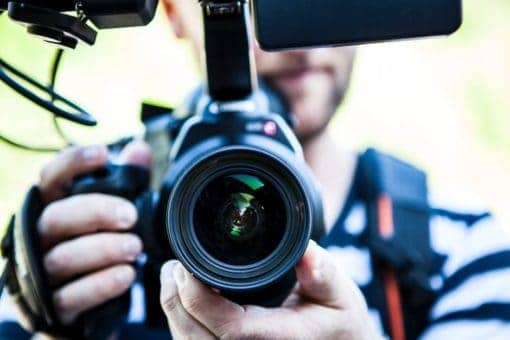

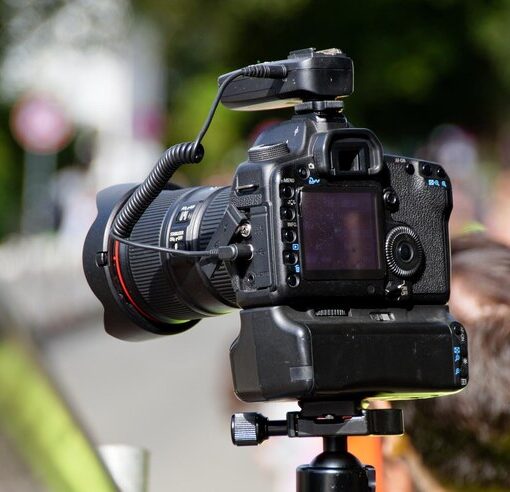
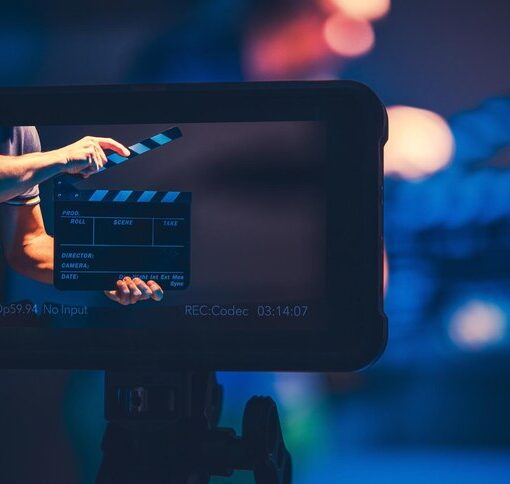
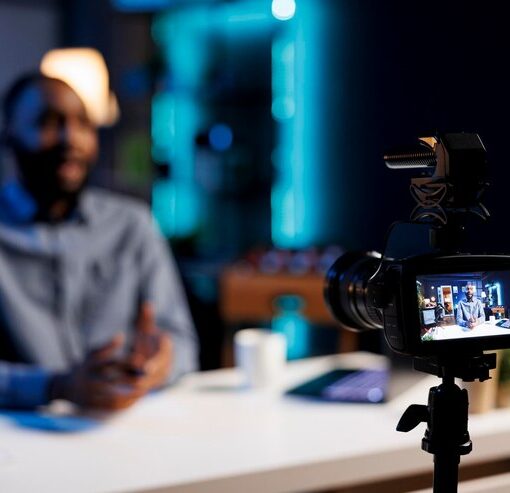
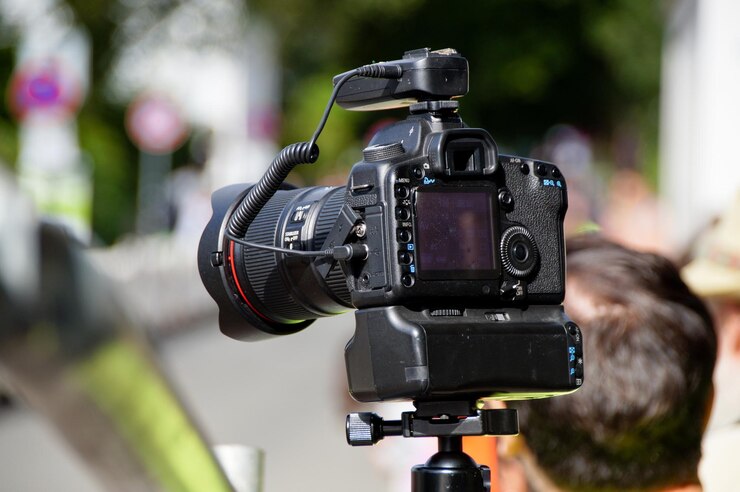
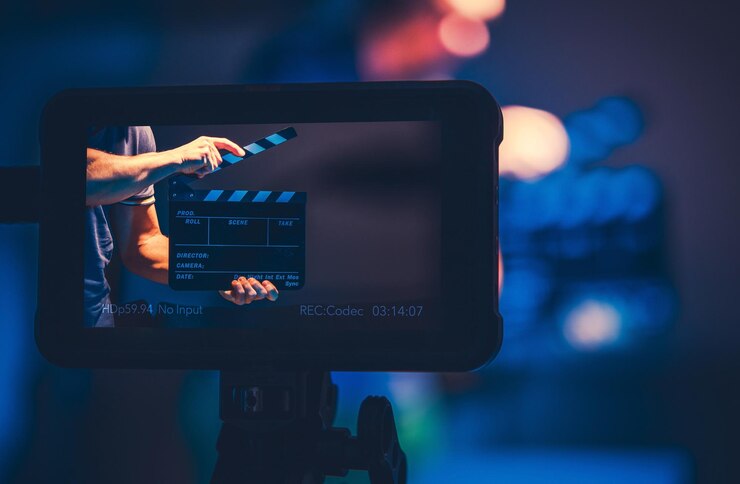
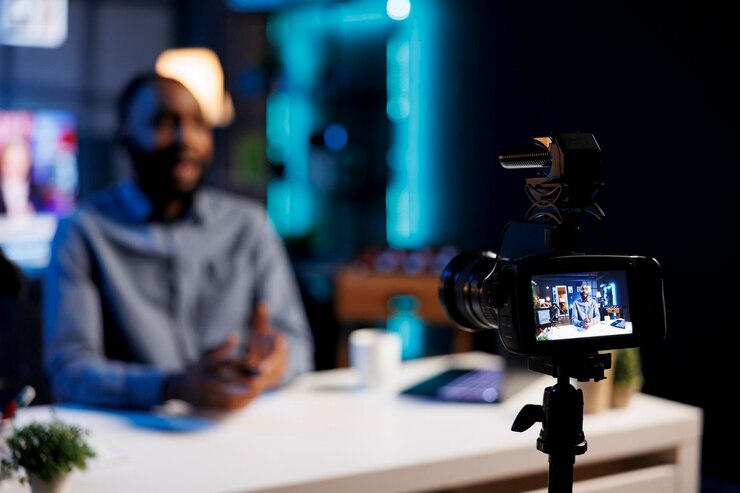
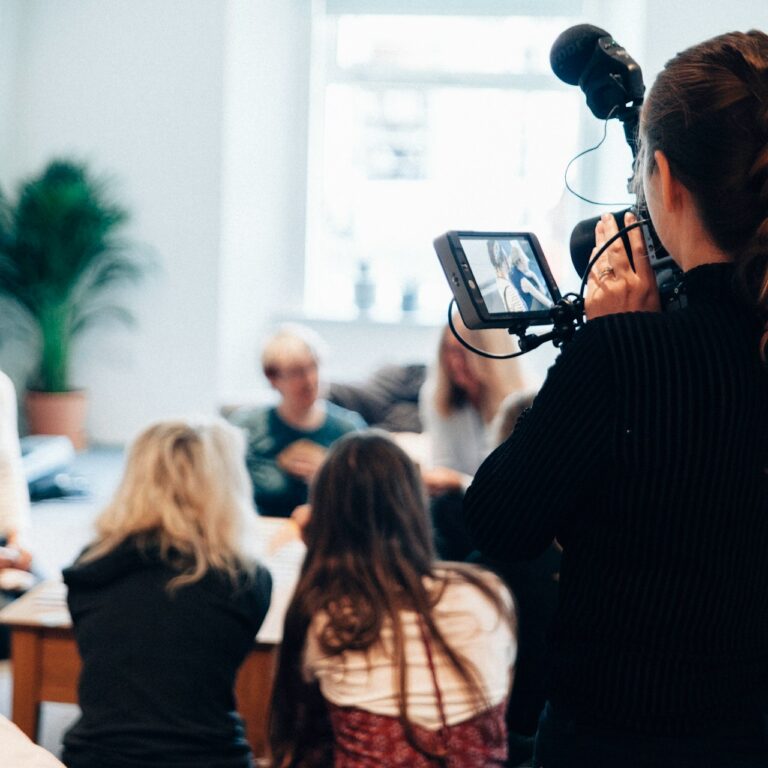
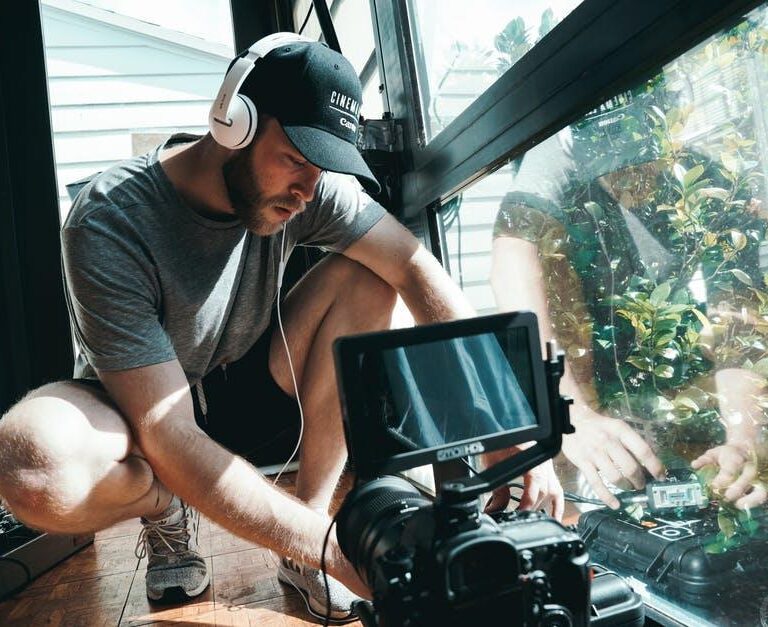


78 Responses
Sou Ph.D. em ciências financeiras e atualmente estou estudando criptomoedas e seu artigo me deu uma boa ideia. Acho que sua forma de escrever é muito útil para minha tese criptomoedas, obrigado. No entanto, tenho algumas dúvidas e gostaria de saber se você pode me ajudar. Obrigado.
Hi vivamedia.ca webmaster, Your posts are always well-timed and relevant.
Fine way of explaining, and fastidious paragraph to obtain facts about
my presentation topic, which i am going to convey in university.
To the vivamedia.ca webmaster, Good to see your posts!
You could definitely see your skills within the work you write.
The sector hopes for even more passionate writers such
as you who aren’t afraid to mention how they believe.
At all times follow your heart.
I’m gone to say to my little brother, that he should also visit this
blog on regular basis to get updated from most recent news update.
Article writing is also a excitement, if you be acquainted with then you can write otherwise it is complex to write.
Greetings! I know this is kinda off topic but I was wondering if you knew
where I could find a captcha plugin for my comment form?
I’m using the same blog platform as yours and I’m having difficulty finding one?
Thanks a lot!
Hi vivamedia.ca owner, Your posts are always well-supported by research and data.
Dear vivamedia.ca owner, Your posts are always informative and well-explained.
It’s truly very complicated in this full of activity life to listen news on Television, therefore I just use web for that
purpose, and obtain the hottest news.
You are so awesome! I do not think I’ve read something like that before.
So wonderful to find another person with a few genuine thoughts
on this subject matter. Really.. thanks for starting this
up. This website is something that is required on the web, someone with a bit of originality!
What’s up to all, the contents existing at this web site are actually awesome for people experience,
well, keep up the nice work fellows.
Hmm is anyone else experiencing problems with the images on this blog loading?
I’m trying to find out if its a problem on my end or if it’s the blog.
Any suggestions would be greatly appreciated.
Greetings! Very helpful advice in this particular
post! It is the little changes which will make the greatest changes.
Thanks for sharing!
Write more, thats all I have to say. Literally,
it seems as though you relied on the video to make
your point. You clearly know what youre talking about, why
waste your intelligence on just posting videos to your weblog
when you could be giving us something enlightening to read?
It is really a nice and useful piece of information. I’m satisfied that you
just shared this useful info with us. Please
stay us up to date like this. Thanks for sharing.
I love your blog.. very nice colors & theme. Did you design this website yourself or did you hire someone to do it for you?
Plz respond as I’m looking to create my own blog and
would like to find out where u got this from. many thanks
Hello, I think your website might be having browser compatibility
issues. When I look at your website in Safari, it looks fine
but when opening in Internet Explorer, it has some overlapping.
I just wanted to give you a quick heads up! Other then that, terrific blog!
Thank you for the good writeup. It in fact was a amusement account it.
Look advanced to far added agreeable from you! By the
way, how can we communicate?
Hey very nice blog!
My brother suggested I may like this website. He was once entirely right.
This publish truly made my day. You can not imagine simply how much time I had
spent for this information! Thanks!
Do you mind if I quote a few of your posts as long as
I provide credit and sources back to your webpage? My website is in the very same area of interest as yours and my visitors would really
benefit from a lot of the information you present here. Please let me know if this okay with you.
Regards!
Why users still make use of to read news papers when in this technological globe all is available on net?
Sweet blog! I found it while surfing around on Yahoo News.
Do you have any suggestions on how to get listed in Yahoo News?
I’ve been trying for a while but I never seem to get there!
Appreciate it
Thanks for sharing your info. I really appreciate your efforts and I will be waiting for your
next post thanks once again.
Hi vivamedia.ca webmaster, Your posts are always a great source of information.
Informative article, totally what I wanted to find.
First of all I would like to say great blog! I
had a quick question that I’d like to ask if you do not mind.
I was interested to find out how you center yourself and clear your head prior to writing.
I’ve had a hard time clearing my mind in getting my thoughts out.
I truly do enjoy writing but it just seems like the first 10 to 15 minutes are generally
lost simply just trying to figure out how to begin.
Any recommendations or hints? Appreciate it!
You can definitely see your enthusiasm within the work you write.
The sector hopes for more passionate writers such as you who are not
afraid to mention how they believe. At all times follow your heart.
always i used to read smaller articles or reviews which also clear their motive, and that is also happening with this paragraph which I am
reading at this place.
Just want to say your article is as astounding. The clearness to your
submit is simply cool and that i can assume you are an expert
in this subject. Well along with your permission allow me to take hold of your feed to keep updated with impending post.
Thanks a million and please keep up the rewarding work.
Hi there! I realize this is somewhat off-topic but I had to
ask. Does managing a well-established blog such
as yours require a massive amount work? I’m brand new
to writing a blog but I do write in my diary everyday.
I’d like to start a blog so I can share my experience and feelings
online. Please let me know if you have any kind of suggestions or tips
for brand new aspiring blog owners. Thankyou!
I visited several web sites however the audio quality for audio songs existing at
this site is truly marvelous.
Fabulous, what a blog it is! This web site presents useful data to us, keep it up.
Hello this is kinda of off topic but I was wondering if blogs use WYSIWYG editors or if you
have to manually code with HTML. I’m starting a blog soon but have no coding knowledge so I wanted to get guidance
from someone with experience. Any help would be enormously
appreciated!
Helpful information. Lucky me I discovered your web site by chance, and I am stunned why this twist
of fate didn’t took place in advance! I bookmarked it.
I don’t know if it’s just me or if perhaps everybody else experiencing problems with your website.
It looks like some of the written text within your content are running off the screen. Can someone
else please provide feedback and let me know if this
is happening to them as well? This might be a problem with my web
browser because I’ve had this happen previously. Thanks
I was excited to uncover this page. I want to to thank
you for your time for this particularly fantastic read!!
I definitely liked every part of it and i also have you
bookmarked to check out new information on your website.
To the vivamedia.ca webmaster, You always provide great examples and real-world applications.
Its such as you learn my thoughts! You appear to understand
a lot approximately this, like you wrote the e book in it or something.
I think that you just could do with some percent to pressure the message home a bit, however other than that,
this is fantastic blog. An excellent read. I will certainly be back.
To the vivamedia.ca owner, Your posts are always well-delivered and engaging.
I really like reading through a post that will make men and women think.
Also, many thanks for allowing me to comment!
First off I would like to say awesome blog! I had
a quick question which I’d like to ask if you do not mind.
I was interested to know how you center yourself and clear your mind prior to
writing. I have had difficulty clearing my mind in getting
my thoughts out. I truly do enjoy writing but it just seems like the first 10
to 15 minutes are usually wasted just trying to figure out how to begin. Any ideas or
hints? Kudos!
Howdy would you mind stating which blog platform you’re working with?
I’m going to start my own blog soon but I’m having a difficult time deciding between BlogEngine/Wordpress/B2evolution and Drupal.
The reason I ask is because your design and style seems different then most blogs and I’m looking for something unique.
P.S Sorry for getting off-topic but I had to ask!
Do you mind if I quote a few of your posts as long
as I provide credit and sources back to your site?
My blog site is in the exact same area of interest as yours and my visitors would truly benefit from some of the information you provide here.
Please let me know if this alright with you. Thank you!
It’s very easy to find out any topic on web as compared to textbooks, as I found this post at this web page.
My family members always say that I am killing my time here at web,
except I know I am getting knowledge daily by reading such fastidious posts.
Hi there! Would you mind if I share your blog
with my twitter group? There’s a lot of folks that I think would really enjoy your content.
Please let me know. Cheers
Hello colleagues, its great paragraph regarding tutoringand entirely defined, keep it up all the time.
This is the right site for anybody who wishes to find out about this topic.
You understand a whole lot its almost hard to argue with
you (not that I actually would want to…HaHa).
You certainly put a new spin on a topic that’s been discussed for years.
Excellent stuff, just great!
Thanks for one’s marvelous posting! I seriously enjoyed reading it, you happen to be a great author.
I will be sure to bookmark your blog and will often come back in the foreseeable future.
I want to encourage continue your great writing, have a nice day!
I got this web page from my friend who informed me about this site and now this time I am visiting this website and reading very informative articles at this place.
Howdy! I’m at work surfing around your blog from my new apple iphone!
Just wanted to say I love reading through your blog and look forward to all your posts!
Carry on the superb work!
Wow, marvelous blog structure! How long have you ever been running a blog for?
you make running a blog look easy. The full look of your web
site is great, as well as the content material!
I have read so many articles or reviews about the blogger lovers but this piece of writing is genuinely a pleasant paragraph,
keep it up.
Have you ever thought about writing an ebook or guest authoring on other websites?
I have a blog based upon on the same subjects you discuss and
would love to have you share some stories/information. I know
my visitors would enjoy your work. If you’re even remotely interested, feel free to shoot me an e-mail.
Hello there, I discovered your site via Google whilst searching for a similar subject, your web site got here up, it looks good.
I have bookmarked it in my google bookmarks.
Hi there, simply changed into alert to your blog thru Google, and located that it’s truly informative.
I am going to be careful for brussels. I’ll be grateful for those who proceed this in future.
Numerous people will be benefited out of your writing.
Cheers!
I’m truly enjoying the design and layout of your website.
It’s a very easy on the eyes which makes it much more pleasant for me to come here and visit more often. Did you
hire out a designer to create your theme? Excellent work!
What’s up colleagues, how is the whole thing, and what you desire
to say regarding this paragraph, in my view its in fact amazing for me.
Great looking internet site. Presume you did a bunch of your very own html coding. Koop januvia online in Europa
Excellent post. I was checking constantly this blog and I am impressed!
Very useful information particularly the last part 🙂 I care for such
information a lot. I was seeking this certain information for a very long
time. Thank you and best of luck.
I don’t even know how I ended up here, but
I thought this post was good. I do not know who
you are but certainly you’re going to a famous blogger if you aren’t already 😉 Cheers!
With havin so much content do you ever run into any issues of plagorism or copyright
infringement? My website has a lot of unique content I’ve either created
myself or outsourced but it seems a lot of it is popping it up all over
the internet without my authorization. Do you know any techniques
to help prevent content from being stolen? I’d really appreciate
it.
Excellent post. I was checking constantly this weblog and I’m inspired!
Very useful info specifically the closing section 🙂 I take
care of such info much. I used to be seeking this particular info for a
very lengthy time. Thank you and good luck.
I have read so many articles or reviews regarding the blogger lovers but this piece of writing is genuinely
a nice post, keep it up.
Hello it’s me, I am also visiting this web page regularly, this web site is
in fact good and the viewers are in fact sharing pleasant thoughts.
Hello there I am so grateful I found your website, I really
found you by mistake, while I was searching on Bing for something
else, Nonetheless I am here now and would just like
to say many thanks for a marvelous post and a all round interesting blog (I
also love the theme/design), I don’t have time to browse it all
at the moment but I have saved it and also added your RSS
feeds, so when I have time I will be back to read a great deal more,
Please do keep up the fantastic b.
whoah this blog is fantastic i really like reading your posts.
Keep up the good work! You recognize, many persons are searching around for this information, you can aid them greatly.
Good day! This post couldn’t be written any better!
Reading through this post reminds me of my good old room mate!
He always kept talking about this. I will forward this page
to him. Fairly certain he will have a good read.
Many thanks for sharing!
This paragraph is in fact a nice one it assists new
web users, who are wishing for blogging.
Every weekend i used to pay a quick visit this site, for the reason that i
want enjoyment, as this this web page conations genuinely fastidious
funny material too.
Wow, amazing blog format! How long have you been blogging
for? you made blogging look easy. The overall glance of
your website is great, let alone the content material!
You can see similar here sklep online
Thank you for the auspicious writeup. It in fact
was a amusement account it. Look advanced
to far added agreeable from you! By the way, how can we communicate?
Having read this I thought it was rather informative.
I appreciate you taking the time and effort to
put this informative article together. I once again find myself personally spending a lot of
time both reading and leaving comments. But so what, it was still worth it!
Your style is very unique compared to other people I’ve read stuff from.
Thanks for posting when you have the opportunity, Guess I will just book mark this blog.